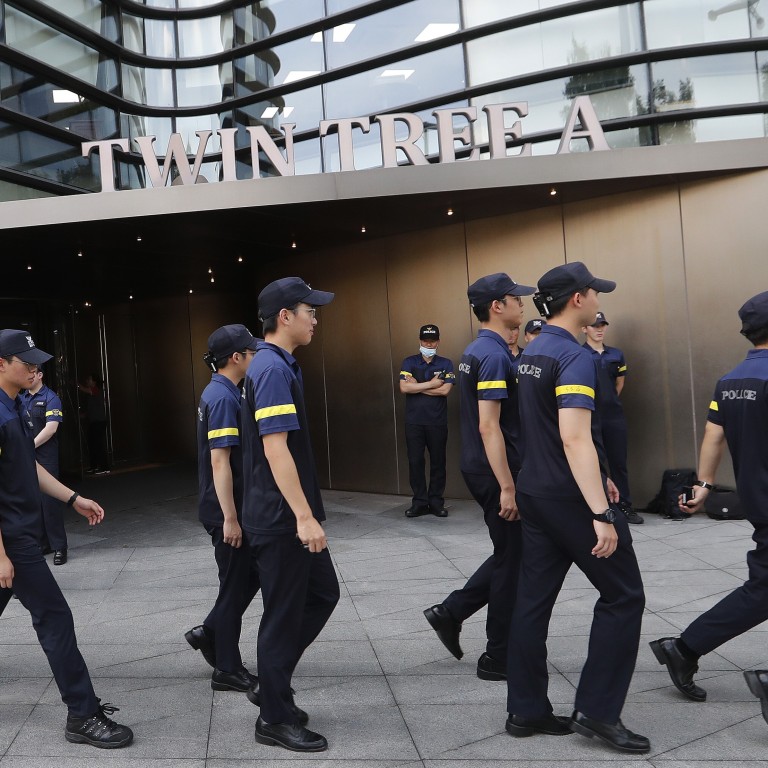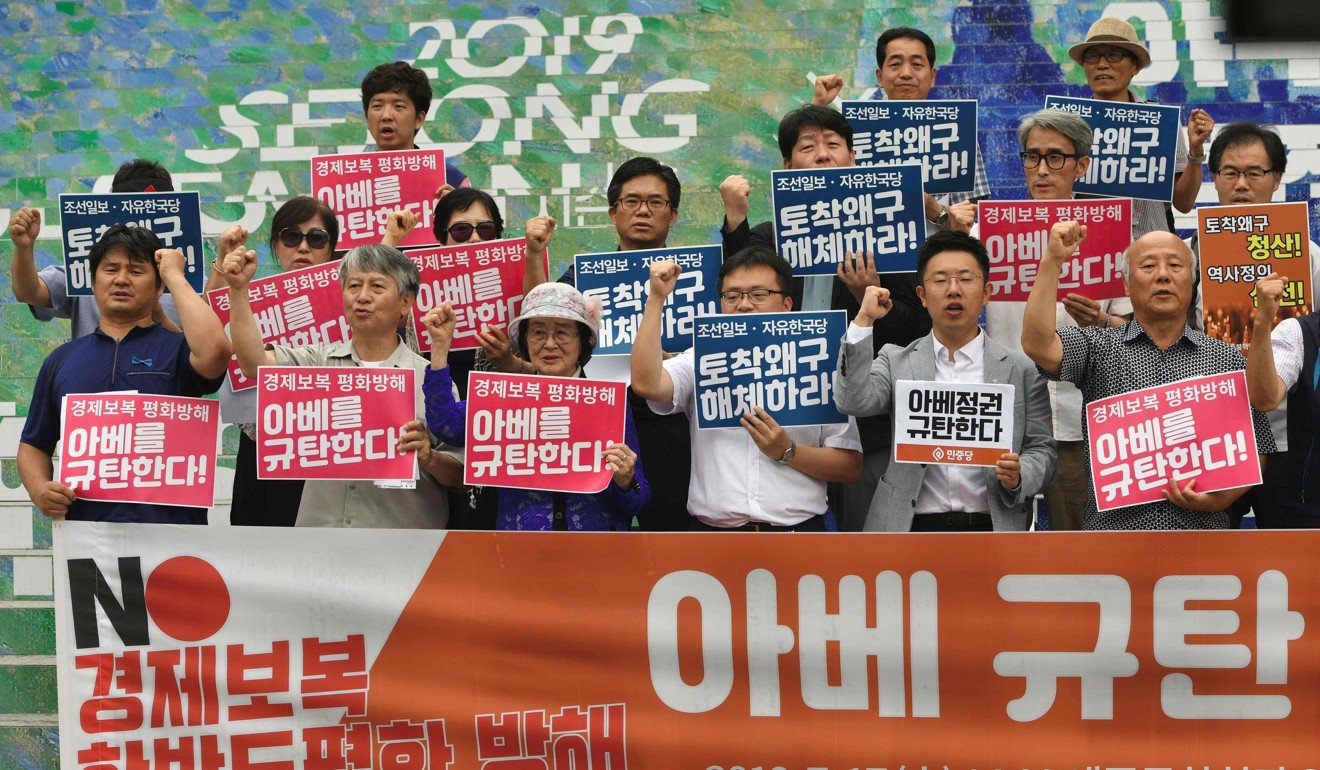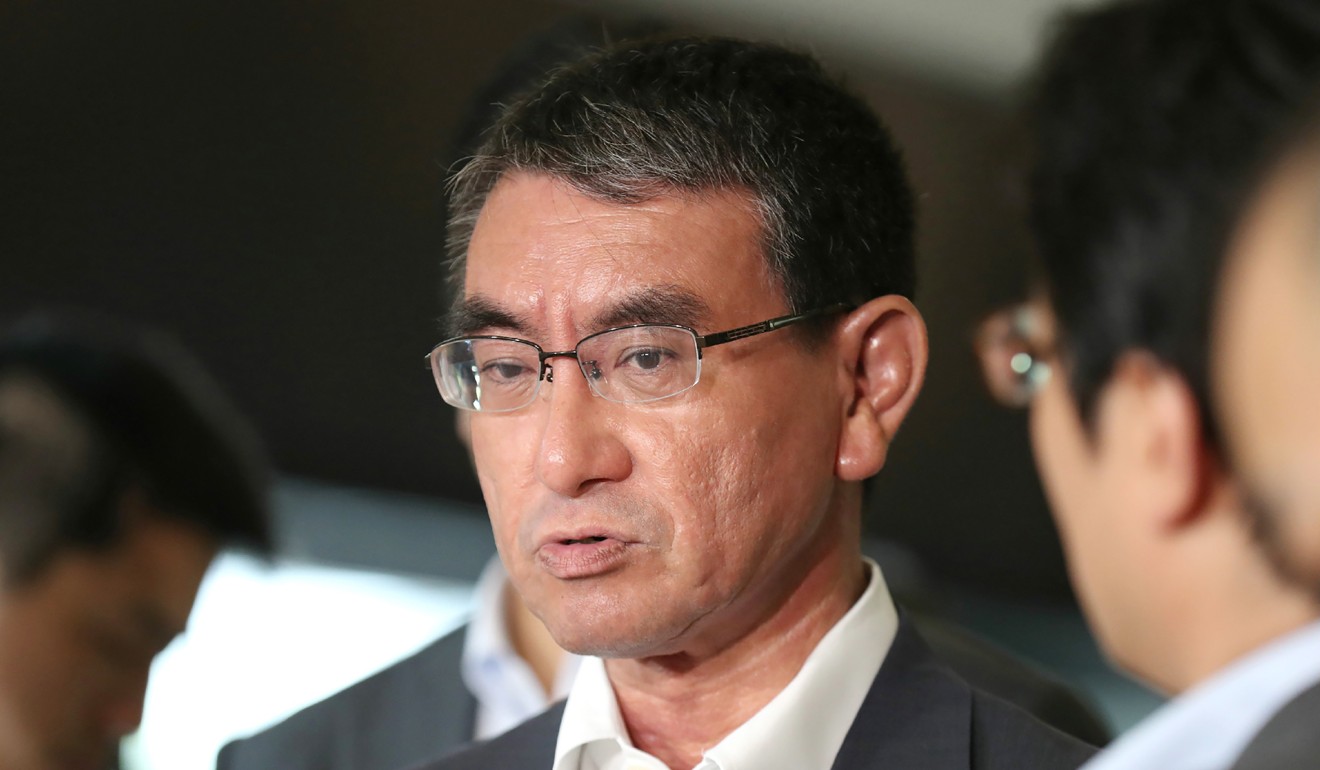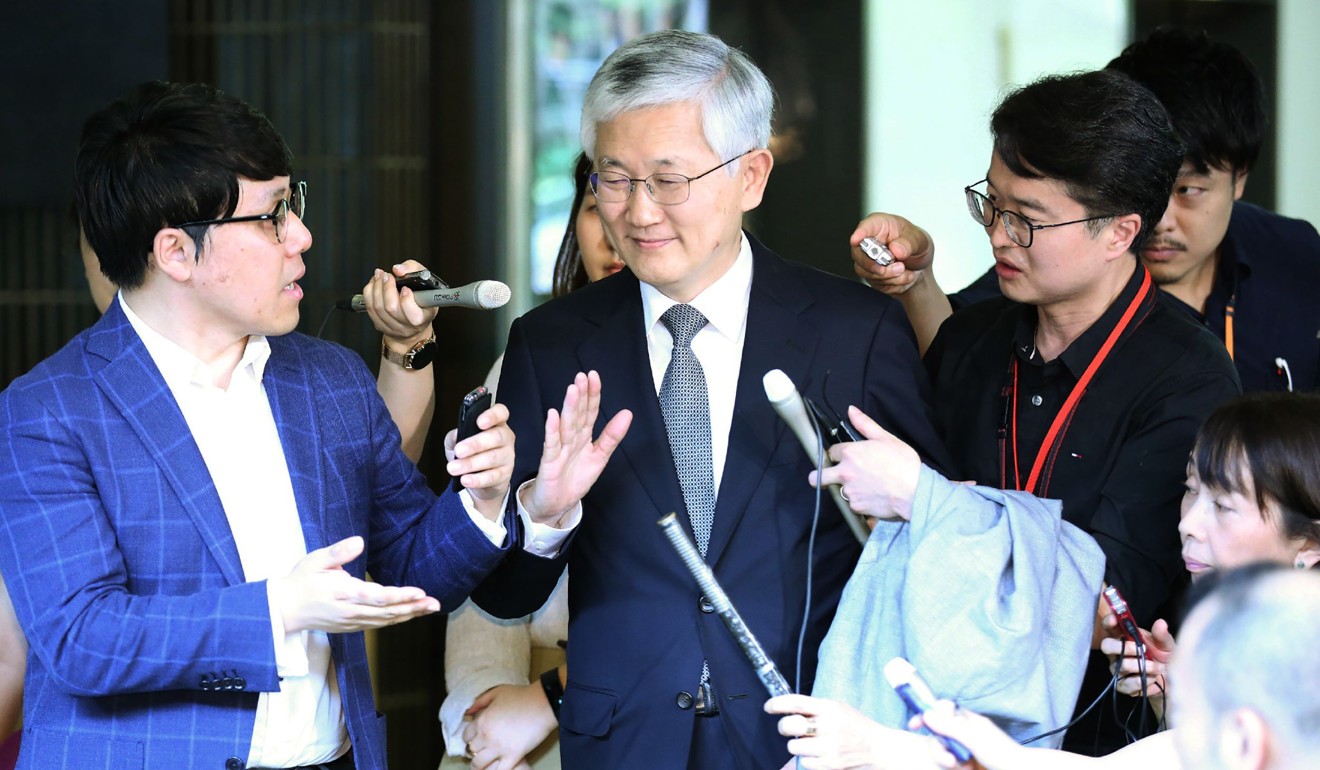
In Seoul, man lights himself on fire in front of Japan embassy amid row over forced wartime labour
- Police said the 78-year-old man ignited a fire inside his car parked in front of the embassy building, and later died from his injuries
- South Korea and Japan are locked in a dispute over compensation for forced labourers during the second world war and Tokyo’s controls on hi-tech exports
The diplomatic row between South Korea and Japan hit new lows on Friday with a man burning himself alive in protests against the wartime dispute, and Tokyo vowing additional retaliatory measures against its East Asian neighbour.
South Korean police said a 78-year-old man surnamed Kim on Friday morning set himself on fire in his car outside the Japanese embassy in Seoul. Police later confirmed he died in hospital from his injuries.
Police said Kim had phoned an acquaintance earlier to say he planned to self-immolate to express his antipathy toward Japan.
The neighbouring countries are quarrelling over South Korean court decisions ordering Japanese companies to compensate victims of forced labour during Japan’s 1910-1945 colonial rule of the Korean peninsula.

Kim’s family told investigators his father-in-law had been conscripted as a forced labourer when the Korean Peninsula was under Japan’s colonial rule from 1910-45, according to a police statement.
No suicide note was found. Police earlier said flammable materials were found in the car that Kim borrowed from an acquaintance Thursday.
South Korean courts recently ruled in favour of South Koreans who were forced to work in mines and factories during the colonial era, and seized assets of a Japanese firm to enforce remunerations for some of the victims.
But Japan argues that all compensation issues were settled under a 1965 bilateral agreement, and says South Korea’s refusal to intervene in the court process is a breach of the international treaty.
Stoking the diplomatic row, Japan on Friday summoned South Korea’s ambassador to protest Seoul’s refusal to join in an arbitration panel to settle the dispute. South Korea had until midnight on Thursday to respond to Japan’s request for a three-nation panel.
Foreign Minister Taro Kono said after summoning South Korean Ambassador Nam Gwan-pyo that Japan will “take necessary measures” against South Korea. He cited “severe conditions of Japan-South Korea relations caused by the South Korean side”, according to Kyodo News service.
South Korea’s presidential Blue House however said it finds it “unnecessary to comply” with Japan’s demands.

“The government does not agree with the unilateral and arbitrary allegations by the Japanese government concerning our court rulings and dispute-settlement procedures provided by the (1965) agreement on remunerations”, the South Korean foreign ministry said in a statement.
“In order to settle the issue, it is necessary for Japan to face the unfortunate history and make efforts to pain and wounds of victims.
“The government’s position is that we are willing to discuss with Japanese authorities in search of reasonable solutions that would satisfy peoples of the two countries and victims as well, including ways to resolve smoothly the issue of implementing” the South Korean court rulings, it said.
Seoul is also protesting Japan’s tightened controls on sensitive hi-tech exports to South Korea that could affect South Korean manufacturers as well as global supplies of smartphones and displays.
Seoul has accused Tokyo of weaponising trade to retaliate against the South Korean court’s rulings on the wartime labour compensation case, and plans to file a complaint with the World Trade Organisation.
“We hope Japan withdraws unilateral pressure [on South Korea] using export curbs, which are retaliatory in their nature, and return to the scene of diplomatic solution.”, the foreign ministry said.

Kono slammed South Korea’s handling of the dispute as “extremely rude”.
“What the South Korean government is doing now subverts the world order established after World War II.”
Tokyo is considering taking the issue to the International Court of Justice.
Tokyo has insisted that the trade controls have nothing to do with historical dispute between the countries and said privileged licensing for the materials - microchips and mobile phone screens – affected by the export controls can be sent only to trustworthy trading partners.
On Thursday, Seoul hinted it might scrap the General Security of Military Information Agreement (GSOMIA), a bilateral accord on exchanging sensitive military intelligence about North Korea.
“We will consider all options. In other words, we’ll be taking an objective look at the GSOMIA qualitatively and quantitively in terms of numbers of the information that we exchanged and based on that objective analysis, we will make a determination to best of our interest,” a high-ranking official at the presidential Blue House told reporters.
Additional reporting by Reuters


